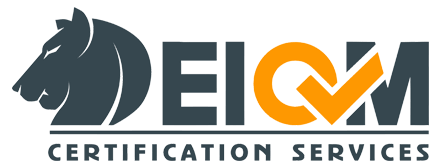ISO 22000 is an international standard developed by the International Organization for Standardization (ISO) that specifies the requirements for a food safety management system. It provides a comprehensive framework for food organizations to identify, evaluate, and control food safety hazards, ensuring the production of safe and high-quality food products.
The Importance of ISO 22000 in the Food Industry
With increasing incidents of foodborne illnesses and the globalization of the food supply chain,This standard plays a vital role in safeguarding public health. It helps food organizations establish effective food safety management systems, enabling them to identify potential hazards, implement preventive measures, and ensure compliance with regulatory requirements.
Understanding the ISO 22000 Framework
PDCA Cycle
ISO 22000 follows the Plan-Do-Check-Act (PDCA) cycle, a continuous improvement framework. This cycle involves planning the food safety management system, implementing the plans, checking its effectiveness, and taking appropriate actions to enhance performance.
HACCP Principles
ISO 22000 integrates the Hazard Analysis and Critical Control Points (HACCP) principles. These principles focus on identifying and controlling hazards throughout the food production process, from raw material sourcing to the end product.
Prerequisite Programs
also emphasizes the implementation of prerequisite programs. These programs include good manufacturing practices, sanitation procedures, pest control, and personnel hygiene, ensuring a solid foundation for food safety management.
ISO 22000 Certification Process
To obtain ISO 22000 certification, food organizations must undergo a series of steps:
Gap Analysis
The organization conducts athorough analysis of its current practices and procedures to identify any gaps or non-compliance with 22000 requirements.
Documentation
The organization develops and implements a comprehensive food safety management system documentation, including policies, procedures, work instructions, and records, aligned with This standard standards.
Internal Audits
Internal audits are conducted to assess the effectiveness of the implemented system, identify areas for improvement, and ensure compliance with ISO requirements.
Certification Audit
An independent certification body conducts an external audit to evaluate the organization’s compliance with 22000 standard. If the organization meets the requirements, it is awarded the ISO certification.
Benefits of Implementing
Implementing ISO 22000 brings numerous benefits to food organizations, including:
Enhanced Food Safety
helps organizations identify and mitigate food safety hazards, reducing the risk of contamination and foodborne illnesses.
Improved Compliance
By adhering to this standards, organizations ensure compliance with food safety regulations and customer requirements, avoiding legal issues and penalties.
Increased Consumer Confidence
this certification demonstrates a commitment to food safety, instilling trust and confidence in consumers, leading to increased customer satisfaction and loyalty.
International Recognition
This is globally recognized and accepted, providing organizations with a competitive advantage in international markets and facilitating trade.
Continuous Improvement
ISO 22000 promotes a culture of continuous improvement, driving organizations to regularly assess and enhance their food safety management systems, ensuring ongoing compliance and effectiveness.
Challenges in Implementing ISO 22000
While ISO 22000 offers numerous benefits, implementing it may pose certain challenges for food organizations, including:
Resource Allocation
Implementing This standard requires allocating resources for training, infrastructure, and system development, which can be a significant investment for some organizations.
Training and Education
Ensuring that all employees understand and adhere to 22000 requirements requires comprehensive training and education programs, which may take time and effort to implement.
Integration with Existing Systems
Integrating ISO 22000 with existing quality management systems or other standards may present challenges, requiring careful planning and coordination.
ISO 22000 in Action: Case Studies
To illustrate the effectiveness of This standard, this section presents real-life case studies of organizations that have successfully implemented the standard and reaped its benefits.
Future Trends and Developments
As the food industry evolves, ISO 22000 is expected to undergo continuous development and updates to address emerging food safety challenges and align with changing regulations and consumer demands.
Conclusion
ISO 22000 plays a critical role in ensuring food safety and quality in the food industry. By implementing this standard, food organizations can effectively manage food safety hazards, comply with regulations, and enhance consumer confidence. Despite the challenges, the benefits of This standard far outweigh the efforts required for its implementation.
Contact EIQM
To contact us, please fill out the form below. We will contact you as soon as possible. You can also apply through this form if you would like to receive system certification or representation of EIQM Certification Body.

